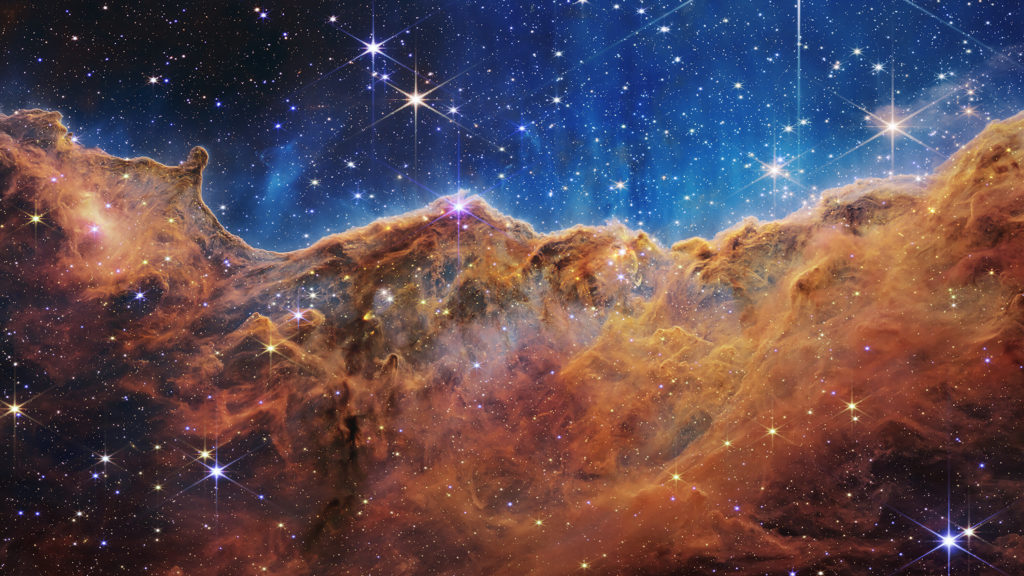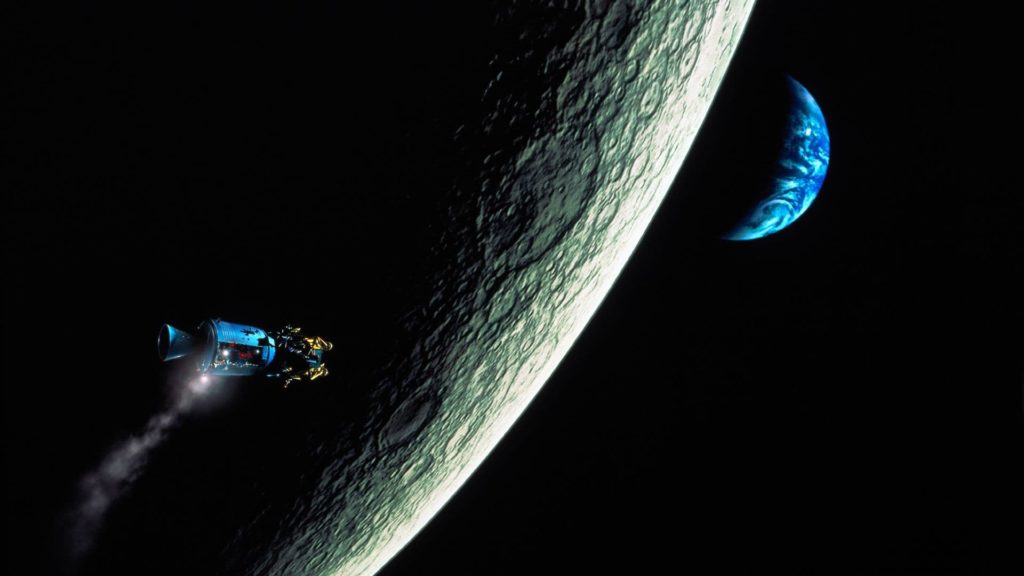Space is cool
Space is cool. I am writing this a few hours after NASA released the first images from the James Webb Space Telescope, whose construction and launch was perhaps the greatest collaborative triumph in the history of astronomy. The pictures reaffirm both the vastness of space and the beauty of it. What a time to be alive.

Journeys to space are inherently dramatic stories. Humans put their lives in the hand of technology that requires precision down to microscopic measurements. We push the boundaries of our natural habitat, breaching a great nothingness where we are tiny specks in an uncaring void. On the razor’s edge of progress and pitch-black oblivion.
Despite all that, journeys to space are not particularly cinematic, for many of the same reasons. There is, by definition, not much to look at in space. Humans drift in waiting for long stretches with little to do but hope that nothing goes wrong.
The list of space movies that are both based on a true story and have the most interesting stuff happen while the astronauts are in space is a pretty short list, topped, to my knowledge, by the excellent Apollo 13. (Though even here, a caveat is required: Much of the compelling stuff happens on Earth while the astronauts are in space rather than on the shuttle itself.)

Apollo 13, I’m sure you know, recounts the failed 1970 American mission to the moon and the subsequent attempt to save the lives of the astronauts on board. The story is sufficiently famous that I don’t consider it a spoiler to say that all astronauts on board ultimately survived the mission; this is an inspirational film, not a tragedy.
Ron Howard is not typically one of my favorite directors, but I think he was the perfect steward for Apollo 13. Howard’s craft-focused, journeyman approach to direction — his trademark absence of authorial voice — allows a neutral, observational version of the story to emerge. It’s maybe halfway towards the naturalism of United 93, with a similar nuts-and-bolts depiction of teams and institutions operating.
That focus on nitty-gritty procedural details naturally lends itself to an episodic mode of storytelling. On the one hand, it fits the material very well: The rescue mission is resolution of one problem at a time until there are no more blockers and everyone survives. It does drain a little bit of a feeling of an overarching vision for the story; again, Howard rarely brings a strong voice to his films.
But it’s just such a compelling narrative and filmed so well. For one, the production values are excellent — you feel like you’re in space and mission control. The CGI seams are very visible in 2022, but not in a way that materially hinders the movie. The characters are given enough depth and personality to make us care about them, but not so much that it interferes with the focus on the space mission.
The parameters of each episode are very coherently and cleanly laid out, making the resolution of each conflict very pleasing. The scene in which a team of scientists need to use items laying around the space shuttle to create an adapter between two pieces of equipment, is especially great. “We gotta find a way to make this fit into the hole for this using nothing but that.” A few scenes later, we see their invention. This quick setup and resolution is a great microcosm of the movie’s charm, pleasing and satisfying and just a little brainy.
The acting is all very good in an professional, blockbuster sort of way. Tom Hanks, by way of his natural screen presence, immediately feels like a real and sympathetic person; the long list of talented actors who co-star (including Ed Harris, Kevin Bacon, and Bill Paxton) is pretty faultless.
There’s an odd turn to the very end of the movie where it pivots into a rah-rah NASA bit of propaganda, capped with a title card saying, pretty explicitly, “the government should give more money to NASA.” It’s a slightly jarring closing for a film that otherwise is fairly even-handed.
- Review Series: Tom Hanks
Is It Good?
Exceptionally Good (7/8)
Dan is the founder and head critic of The Goods. Follow Dan on Letterboxd. Join the Discord for updates and discussion.

